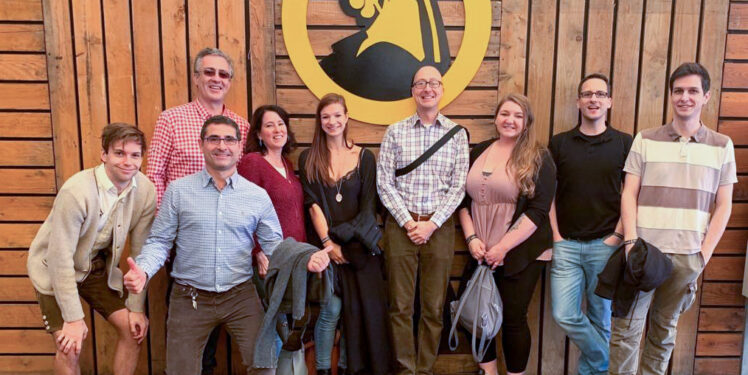Fraunhofer IOSB regularly hosts visiting scientists from all over the world. At the Adaptive Optics Group in Ettlingen, in particular, the international wind is blowing: In recent years, a total of six guest scientists have conducted research here for extended periods of time. The guests came from the USA, Australia, Canada, Italy and Spain. The head of the group, Dr. Szymon Gladysz, gives an insight into his experiences in this interview.
How can visiting scientists come to Fraunhofer IOSB?
If you want to do research at Fraunhofer IOSB as a visiting scientist, you always have to apply on your own initiative, as there is no separate position for this. If you are considering this, you can simply contact the relevant scientific department informally; the contact persons can be found on our website.
Usually, the applicants are researchers in their first or second postdoc year or professors who come to Fraunhofer IOSB on sabbatical. Particularly popular in the past was a stay via the ERCIM fellowship, which finances a one-year research stay at a member institute abroad.
What are the advantages of such a research stay as an international visiting scientist?
In general, cross-cultural encounters are a great enrichment for everyone – not only scientifically. It also brings a lot of joy beyond the work, new culinary impressions and international friendships. Now, my group is quite international anyway, even if you only consider the colleagues working here on a regular basis. But these are usually tied up in long-term projects, have projects with industry, or are working on their doctorates. This means that they are subject to certain deadlines and milestones, despite all the freedom they have with regard to research and publications. Visiting scientists, on the other hand, are largely free to do their own research and are exempt from project work. This means they can pursue the craziest ideas and, of course, publish them.
The mix of different experiences, perspectives and different ways of working that people bring with them creates really great opportunities – from which we as hosts also benefit. With long-term projects, it’s sometimes hard to get rid of tunnel vision, which is where a different perspective can bring helpful impulses. The expertise of the guest researchers often opens up a new perspective that can also lead to new approaches in our research.
Is there an experience that you like to remember most?
There are two things I remember with particular fondness: the first memory is from late 2019, just before the start of the Corona pandemic. Our visiting scholar Melissa Beason, from the University of Central Florida, organized a Thanksgiving feast for our whole group and all the friends she made during her 12 months here. In total, people from over 10 countries were invited, each of whom brought a meal from home. That was my first Thanksgiving dinner!
The second memory is related to Professor Lambert from Australia. As a „hands-on professor,“ he was very happy to finally be able to get hands-on in the lab. During his time with us, he set up the laser link between Karlsruhe and the Ettlingen site. For the installation, he was on the roof for days in the cold and rain because he enjoyed it so much.
Questions asked by Leonie Apostel.

